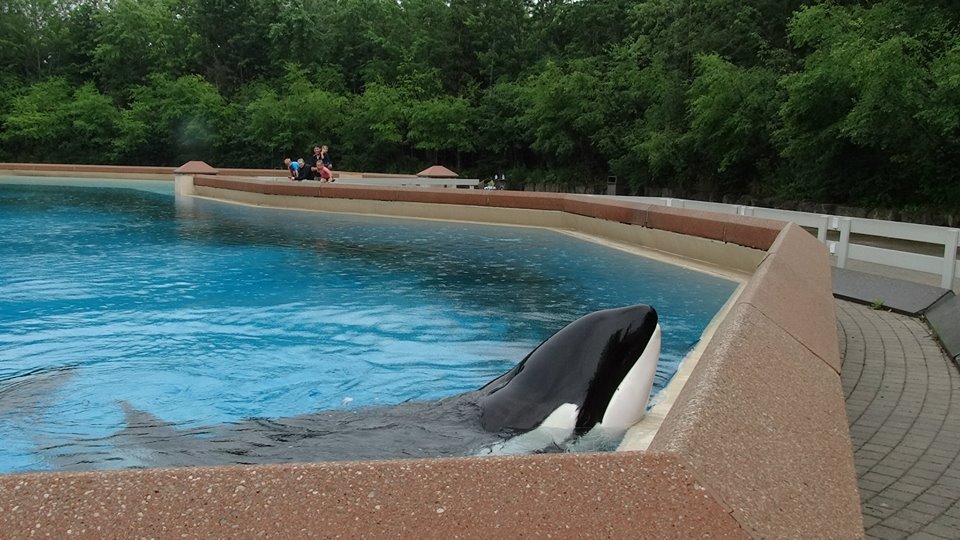Kiska, ‘World’s Loneliest’ Orca Dies Alone in Captivity
Originally taken from the wild back in 1979, Kiska spent over four decades in a tank at Canada’s Marineland.
Kiska at Marineland. Credit: PETA
Kiska, dubbed by campaigners as “the world’s loneliest orca”, has died in captivity at the age of around 47 years old.
The orca was originally taken from the wild back in 1979, where she was caught in Icelandic waters alongside another orca, named Keiko. The pair were later sold to the amusement park Marineland, in Ontario, Canada.
Keiko was moved from the amusement park, becoming famous as the title character in the movie Free Willy, while Kiska remained at Marineland up until her death last week.
Animal welfare groups say Kiska’s life at the park was “dismal” and marked by tragedy after tragedy.
In 2021, footage was released that appeared to show Kiska repeatedly slamming her head against the side of her tank:
Over the decades in captivity, Kiska gave birth to five calves, who all died before they reached the age of seven. Then in 2011, her then-tankmate Ikaika, was shipped over to SeaWorld San Diego, leaving Kiska the sole animal in her tank. This isolation led to her becoming known as “the world’s loneliest orca”, a status which lasted over ten years up until her death.
No More Captive Orcas in Canada
Kiska was Canada’s last remaining orca in captivity, and her passing ushers in a new generation of how the country regards animal captivity.
Canada passed the so-called “Free Willy” bill in 2019, which outlawed the trade, possession, capture, and breeding of whales, dolphins, and porpoises. The bill effectively ended the unnatural practise of using cetaceans for entertainment or keeping them in captivity, but the laws did not apply to those already in captivity.
The bill reflects a growing trend in public awareness which increasingly questions the keeping of marine animals like orcas and dolphins in captivity. This is also leading to the creation of new animal sanctuaries where formerly-captive marine animals can live the remainder of their lives in more natural environments.
The Whale Sanctuary Project (WSP) is among the groups planning landmark marine animal sanctuaries, which incorporate large, protected, designated areas in real-world oceans. The WSP has submitted plans to the Canadian government for a 40-hectare sheltered bay in Nova Scotia which will act as a near-natural “retirement home” for around eight captive beluga whales.
Listen to our podcast episode “Intelligent Life on Earth”, where we speak with Lori Marino, president of the Whale Sanctuary Project, about her extensive work with orcas and belugas and her plans for a marine animal sanctuary where captive orcas can retire.
We Have A Favor To Ask…
Species Unite amplifies well-researched solutions to some of the most abusive animal industries operating today.
At this crucial moment, with worldwide momentum for change building, it’s vital we share these animal-free solutions with the world - and we need your help.
We’re a nonprofit, and so to keep sharing these solutions, we’re relying on you - with your support, we can continue our essential work in growing a powerful community of animal advocates this year.
More stories:
Species Unite
A collection of stories of those who fight the good fight on behalf of animals.





Evaluating drugs with cutting-edge technology instead of animal testing will improve drug safety and cut development times, the agency said as it reveals a roadmap to increase non-animal research techniques.